MASCARO CENTER FOR SUSTAINABLE INNOVATION
2023-24 YEAR IN REVIEW




2023-24 YEAR IN REVIEW




Established in 2003, the Mascaro Center for Sustainable Innovation (MCSI) is the University of Pittsburgh center focused on catalyzing sustainability research and education. MCSI leads Pitt’s faculty sustainability engagement via strategy and programs focused on integrating sustainability into the curriculum, groundbreaking sustainability research, and community outreach and innovation.

Established in 2003, the Mascaro Center’s mission is to co-create research, education, and engagement opportunities by fostering critical connections to solve the complex challenges facing our planet while cocreating more just, equitable, and sustainable communities at the University, within the region, and around the world.
serving as a beacon for sustainability education, offering local and global interdisciplinary programs and experiential learning opportunities that empower members of the Pitt community to become change agents for sustainability; and
nurturing a community that fosters critical thinking, creativity, and a passion for sustainability.

Melissa M. Bilec
Co-Director and Special Assistant to the Provost for Sustainability mbilec@pitt.edu

Gena M. Kovalcik Co-Director gmk9@pitt.edu
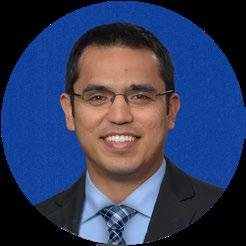
David V P Sanchez
Associate Director
david.sanchez@pitt.edu

Esmée de Cortie
Sustainability Community Engagement Coordinator esmee.decortie@pitt.edu

Savannah Denlinger
Sustainability Academic Programs Manager sld127@pitt.edu

Mary Schrag
Administrative Coordinator mas1752@pitt.edu
MCSI aims to catalyze and expand Pitt’s research capacity to accelerate equitable solutions to pressing sustainability challenges. With our faculty partners, MCSI conducts research that informs policies, practices, and technologies that promote sustainability at the campus, local, regional, and global scales.











In October 2023, the provost reappointed Melissa Bilec, codirector of the Mascaro Center for Sustainable Innovation, to continue serving as special assistant to the provost for sustainability. As part of this role, Bilec led the 17-member Faculty Ad Hoc Committee of Sustainability representing faculty and leaders from across campus. They were charged with developing a shared vision, mission, and goals of the sustainability institute; developing measurable actions to elevate research, education, and engagement in sustainability; exploring options and support for a faculty cluster hire in sustainability; and exploring governance options and developing phased budget models.
In May 2024, the committee provided a full report with recommendations to advance the Plan for Pitt and University-wide sustainability goals by building on our existing strengths to elevate a new Pitt sustainability institute that would constellate existing sustainability functions, create new
value propositions for Pitt, and fundamentally align the University to tackle the biggest sustainability challenges we claim to aspire to address. The ad hoc committee has identified strategic priority recommendations, a vision and mission, and goals. The full report, with detailed information on actions, can be viewed here.

Cross-disciplinary working groups of the Faculty Ad Hoc Committee for Sustainability strategically focused on where a future sustainability institute should expand the positive impact of sustainability research in areas most aligned with Pitt’s current and emerging areas of research.
Connecting research and education efforts across Pitt’s academic schools and centers will help to produce a larger impact on Pitt’s sustainability research constellation. Environmental and climate justice will be a thread that weaves through them all and helps to guide our work.

REGENERATIVE SOLUTIONS
RESPECTING PLANETARY BOUNDARIES
Water Equity
Circular Economy & Sustainable Materials
Complex Sustainable Systems
Just Energy Transition

Engineering
ENVIRONMENTAL DISCOURSE
De/Growth
Preserving Our Past to Understand Our Future
Climate Anxiety
Environmental Justice, Film Studies, & Media Disinformation

History
THRIVING FUTURES IN THE FACE OF REGIONAL CHANGE
Climate & Health
Sustainable Healthcare
Urban Food
Community Resilience and Equitable Built Environments

Public Health
EDUCATION & ENGAGEMENT
RESILIENT ECOLOGICAL SYSTEMS
Water
Ecosystems
Biodiversity
Ecological Justice & Natural Resources


Translate Sustainability Knowledge
Novel Interdisciplinary Student Experiences
Focus on Impact & Innovation
Enhanced Extracurricular Opportunities

Engineering
Cori
Biological Sciences

Signature programs to incentivize Pitt faculty to engage in sustainability research and education * Six Pitt Projects Win $225,000 to Support Sustainable Innovation
Inhee Lee, Department of Electrical and Computer Engineering, Swanson School of Engineering, “Ultra-low-power, Reliable Semiconductor Chip and System Design for Ecological Climate Change Studies with Small Animals”
Paul Leu, Department of Industrial Engineering, Swanson School, “Pioneering Sustainable and Transparent Glass Formulations for Climate Resilience”
Daniel Mossé, Stephen Lee, and Nadine von Frankenberg, School of Computing and Information, “Sustainable (Campus) Buildings through Sensing and Human-Building Interaction”
Sarah Chesney, assistant professor of science/STEM education, University of Pittsburgh at Johnstown, “Pitt-Johnstown STEM Endorsement for Current K-12 Teachers”
Eric Paljug, clinical associate professor of business administration, Pitt Business, “Developing and Launching a Course in Sustainability in the Supply Chain”
Ryan Shi, assistant professor, Department of Computer Science, School of Computing and Information, “AI-based Volunteer Engagement for Crowdsourcing”
Inhee Lee, Department of Electrical and Computer Engineering, Swanson School of Engineering
The overall objective is to establish a research program focused on designing an ultra-low-power semiconductor circuit for timestamping and creating a reliable miniature system suitable for monitoring small animals.
We hypothesize that existing reliability issues stem from clock instability caused by mechanical shocks from animal movements. We propose using hybrid timestamping with two types of oscillators (crystal (XO) and relaxation (RO)) to resolve the issue.
Aim #1: Develop an ultra-low-power, reliable semiconductor circuit for timestamping.
Aim #2: Create a robust miniature system.
Aim #3: Engage undergraduate students in research opportunities.
By achieving our objectives, we aim to facilitate efficient data collection from individual animals in the wild, enabling ecological researchers to better understand the impacts of climate change and human activities on ecosystems.


Paul Leu, Department of Industrial Engineering, Swanson School of Engineering

Utilizes recycled glass to conserve resources
Intolerant to impurities, reducing the need for raw material purification
Aims to eliminate CO2e emissions during production
Lowers processing temperatures, cutting down energy consumption

Increases natural light via windows, enhancing indoor illumination
Boosts the energy efficiency of solar panels, lighting systems, and electronic displays


Lowers heat transfer through windows, reducing energy loss
Minimizes the need for heating in winter and air conditioning in summer, saving energy

Project Objectives
Daniel Mossé, Stephen Lee, Nadine von Frankenberg , Panos K. Chrysanthis, Benjamin Rottman, * Ousmane Dieng, Department of Computer Science & *Department of Psychology


1 2 3 4 5
Enhance energy efficiency and reduce greenhouse gas emissions on the Pitt campus.
Develop new sensing and data science techniques to identify energy efficiency opportunities.
Use human-in-theloop approaches to incorporate sustainable operations into existing buildings.
Data Collection: Create/install sensors and use apps to gather data on occupancy, environmental conditions, and occupant comfort preferences.
Data Analysis: Analyze collected data to provide actionable insights about HVAC/lights to Facilities Management based on actual space usage and occupant feedback.
Intervention: Design and test interventions that encourage occupants to adopt energy-saving behaviors and preferences (e.g., incentivizing users, reporting discomfort).
Comprehensive datasets on building usage and occupant behavior.
Tools for scalable data collection and analysis.
Actionable strategies for energy savings and sustainability improvements in campus buildings.
Collection and integration of occupant feedback into building management systems.
Development of low-cost, scalable sensor solutions and behavioral interventions.
Combination of machine learning and behavioral science to optimize building operations and occupant comfort.
Project insights and methodologies will contribute to achieving the goals of Pitt’s Climate Action Plan.
The strategies developed can be adapted to other universities and large building portfolios, enhancing broader sustainability efforts.
JOHN C. MASCARO AWARDS

Sarah Chesney, assistant professor of science/STEM education, University of Pittsburgh at Johnstown, Pitt-Johnstown STEM Endorsement for Current K-12 Teachers
This program aims to create a pathway for current teachers to:
Shift their teaching to more authentically and meaningfully engage students in scientific literacy and to discover how the STEM disciplines work together to solve global sustainability problems.
Discover the challenges that STEM professionals have in disseminating new findings to citizens, the vastness of information, the propensity of information to become distorted, misunderstood, or misused depending on political/personal biases, and impart this learning and practice to their current students.
Examine their roles as teachers to model scientific literacy in their classrooms, and engage students in evaluating information and using evidence to support their claims and drive scientific discourse.
Complete their STEM Endorsement
Certificate, as an advocate of learning, stewardship and sustainability, with the goal of moving themselves and students beyond awareness to engagement via the projects they implement in their classrooms.
Teachers in this program will engage in accelerated post-bacc courses and seminars, real-time field experiences within their actual classrooms, self-identified pathways of professional development, and collaboration with other area teachers and university students.
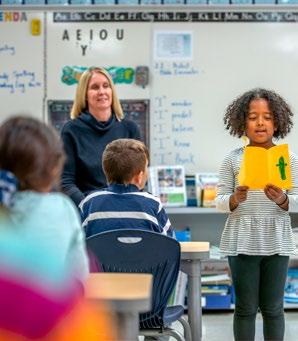

JOHN C. MASCARO AWARDS

Eric Paljug , clinical associate professor of business administration, Pitt Business, Developing and Launching a Course in Sustainability in the Supply Chain
Develop a 3-credit undergraduate course that explores practical and effective sustainability opportunities that firms pursue in their operations and supply chain management decision-making.
Position course as an elective for the College of Business Administration Supply Chain Management Degree.
Structure course so interested students outside the business school can be successful in the class.
Incorporate case studies, guest speakers, tours and simulations for an engaging and vibrant course.


Supply Chain and Operations leaders make critical decision related to an organization’s sustainability. McKinsey finds that most ESG initiatives have significant supply chain components and, for example, most of the environmental impact associated with the consumer sector is embedded in supply chains.
This elective will equip students with an understanding of how firms successfully capture effective sustainability opportunities and give them the tools to join, propose and lead such endeavors.
This focused course will be an important addition to our program, complementing other classes that introduce sustainability as one of many topics.



JOHN C. MASCARO AWARDS

Ryan Shi, assistant professor, Department of Computer Science, School of Computing and Information
Food rescue platforms match edible food donations to low-resource communities to fight food insecurity, and rely on volunteers to do the delivery. Volunteer engagement is a main challenge in their operation. We develop and deploy a suite of algorithms to address the following three aspects of this challenge:
Who to engage?
A recommender system to advertise food rescue opportunities to the “right” volunteers [WWW-21]
How to engage?
A large language model-based pipeline to generate personalized message on task difficulty [WWW-24]
When to engage?
A bandit data-driven optimization algorithm for sequential volunteer engagement [AAAI-22]




In partnership with Food Rescue Hero, a network of food rescue platforms, we have deployed some initial findings of our research and ran a randomized controlled trial of our volunteer engagement algorithms. Our work is reaching over 45k volunteers and thousands of community organizations serving the food insecure populations.
More research and field trials are currently underway.
In collaboration with the David C. Frederick Honors College and the Office of the Senior Vice Chancellor for Research, we partnered on integrating sustainability into broad University programs.
Aaron Henderson, associate professor, Department of Studio Arts, Kenneth P. Dietrich School of Arts and Sciences, “Future Studio: Regional Environmental Justice Interventions”
Sarah Moore, teaching assistant professor, Film and Media Studies Program, Kenneth P. Dietrich School of Arts and Sciences, “Greenway”
Alex Taylor, associate professor, Department of History of Art and Architecture, “Beyond the Rust Belt: Reinterpreting Labor and Land in the UAG Collection”

Olivia Carson, environmental science major, “Polyploid Population Establishment and Bioremediation Potential in Duckweed”
Kayleigh Phillips, chemistry major, “Unraveling Poison Ivy’s Response to Climate Change: A Historical Analysis of Toxicity”
For more than 20 years, MCSI’s summer Undergraduate Research Program has supported more than 400 students. In summer 2024, the program supported 27 students from 13 different departments whose disciplines include environmental science, engineering, chemistry, biological sciences, anthropology, political science, and urban studies.
Greater Pittsburgh Community Food Bank Students packed over 2,000 boxes for local, low-income senior citizens.
Tree Pittsburgh
Students worked with local non-profit to plant and maintain street trees in South Oakland.
MCSI is especially thankful to the following donors who make this program possible each year.

Center for Sustainable Innovation

Results from MCSI seed funding can take the form of federal follow-on funding, publications, presentations, and innovation.
MCSI Research Seed Grants catalyze the formation of convergent research teams focused on sustainability and associated solutions. Through this program, MCSI has supported more than 125 faculty research projects, resulting in more than $40 million in follow-on funding since 2004.
In 2023-24, more than $5.4 million in follow-on funding was generated from MCSI seed grants, including the projects on the following pages.
125 $5.4M $40M FACULTY RESEARCH PROJECTS 2023-24 FOLLOW-ON FUNDING FOLLOW-ON FUNDING SINCE 2004
Melissa Bilec, University of Pittsburgh | Jenna Jambeck , University of Georgia

SpheriCity: Circularity from Molecules to the Built Environment in Communities is a three-part effort through the new National Science Foundation (NSF) Directorate for Technology, Innovation and Partnerships Convergence Accelerator program. Part 1 was a workshop led by Bilec that then resulted in the team winning a Phase I award ($750,000). Phase II of this project, led by Jenna Jambeck from the University of Georgia, is a two-year commitment of NSF support ($2 million in Year 1 and $1 million in Year 2; Bilec’s funding will be $740,000), with the total funding for this three-year cooperative agreement capped at $5 million.
A circularity path that was connected and converged across multiple materials and scales in two large metropolitan areas in Phase 1 is being expanded in Phase 2 by training local implementation partners and further developing a novel dynamic data and education portal to facilitate inter- and intra-community dialogue to create systems change, with special emphasis on circularity across plastics (exploring PFASfree alternatives), organic materials, and the built environment in 11 additional cities. Partners in this project include Resilient Cities (more than 200 chief resilience officers, practitioners, and researchers), the 2030 Districts Network of cities working to catalyze transformation in the built environment, Mississippi River Mayors, and the Upper Midwest Association for Campus Sustainability.



Fernando Tormos-Aponte, assistant professor, Department of Sociology, Kenneth P. Dietrich School of Arts and Sciences
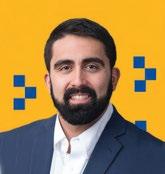
THE SOLVER LAB embarks on transdisciplinary, multimethod research that explores the critical issues of social vulnerability and resilience in the context of socioecological disasters and climate change.




Sarah Moore’s sustainability research led to a solo exhibition titled “Greenway” at UnSmoke Systems Art Space in Braddock, Pennsylvania, this past April. This show resulted in an essay written by Emma Riva for the online Petrichor Magazine.
petrichorpittsburgh.com/2024/05/06/sarah-moores-greenway/
Because of how well the UnSmoke show went, Moore also will be having a video installation show at the University Art Gallery, which will open in September and be up until March. The videos in this show will be part of the bigger project Greenways.
sarahkatherinemoore.com



Invention disclosures, patent applications, licenses and/or new company formation submitted in 2023 as a result of an MCSI seed grant.

FORMATION
Sachin Velankar, Department of Chemical Engineering, Swanson School


MITIGATION OF MNBI PERMANENT MAGNET DEMAGNETIZATION THROUGH ADVANCED MOTOR DESIGNS FOR RARE EARTH FREE/LEAN PERMANENT MAGNET MOTORS
Brandon Grainger, Department of Electrical and Computer Engineering, Swanson School


Sustainability journals, publications and presentations resulting from MCSI support

JOURNAL
List of all publications that appeared during the last calendar year by categories
MCSI is leading University efforts to infuse sustainability into undergraduate and graduate education and coordinate service learning and cross-disciplinary academic collaborations across campus.












Pitt faculty can assign sustainability-focused and sustainability-related attribute codes to courses within Curriculog. This enables students to filter and identify classes with sustainability content. MCSI is working to fill this curriculum management software with the broadest and most complete listing of sustainability options available to our students.
Sustainability-focused: A sustainability-focused course addresses sustainability as an integrated concept throughout, highlighting the interconnectivity between all three pillars (social, economic, and environmental dimensions).
SUSTAINABILITYFOCUSED COURSES
Sustainability-related: A sustainability-related course or program incorporates sustainability as a distinct component or concentrates on the interconnection between two of the three pillars.
DIFFERENT MAJOR/ DEPARTMENTS REPRESENTED
SUSTAINABILITYRELATED COURSES

Building upon students’ previous experience and skills, the project-based Sustainability Capstone course led by David Sanchez enables interdisciplinary student teams to synthesize comprehensive solutions to complex, real-world sustainability challenges. Capstone groups are interdisciplinary student teams who collaborate with an industry or community partner to work toward a sustainability goal. Students present their work at the Sustainability Symposium at the end of the term.






“Pennsylvania continues to be challenged by abandoned mine drainage. Given the recent investment through the federal Infrastructure Investment and Jobs Act of hundreds of millions of dollars to restore these sites,” says Dr. David Sanchez, associate director, MCSI.
“I brought two classes, including our civil and environmental engineering engineering lab students, to a mine drainage site to meet with water quality specialists and engage with stakeholders such as the Pennsylvania Department of Environmental Protection and Bureau of Abandoned Mine Reclamation. Many professional opportunities are opening up for the students because of this investment.”




SUSTAINABILITY CERTIFICATE
MS SUSTAINABLE ENGINEERING
265 60 7 54 745 17
SINCE 2018 GRADUATES
ENROLLED SPRING 2024 SPRING 2024
413
SUSTAINABILITY CAPSTONE SUSTAINABLE TRANSCRIPT DISTINCTION SPRING 2024
GRADUATES (SINCE 2019)
CURRENT ISSUES IN SUSTAINABILITY
Taught by Patrick Shirey
Taught by David Sanchez and Tony Kerzmann
ENROLLED SPRING 2024 GRADUATES (SINCE 2021) 40 19
7

455
13
8 trained sustainability leaders presenting on campus sustainability presentations delivered in-person and over Zoom

MCSI led a first-year Swanson School of Engineering seminar focused on environmental engineering and including alumni panelists for 135 participants.
students reached through sustainability presentations different departments received sustainability presentations different departments received sustainability presentations SSOE

An academic community for first-year arts and sciences students, this one-credit foundations seminar is taught by MCSI staff. The course explores how humans live in harmony with each other and with nature in urban areas and how sustainability plays out in natural and built environments.
CONCURRENT ACADEMIC COMMUNITY COURSES
GEOL 0840
Environmental Science (3 Credits)
GEOL 0840
Environmental Science Recitation (0 Credits)
URBNST 0010
Introduction to Urban Studies (3 Credits)
FP 0002
Academic Foundations: Academic Community (1 Credit)
Urban Ecology and Sustainable Food Systems is a weeklong course for incoming first-year students invited to the Pitt Provost Academy. Focusing the curriculum on the native pawpaw (a fruit important to Native Americans, European colonists, and African Americans), Patrick Shirey starts the week by serving the students homemade pawpaw dessert to generate excitement. At the end of their experience, students effectively recall and present what they learned from immersion in active service.
Students in the course planted additional pawpaw fruit tree seedlings next to the Charles L. Cost Field on campus in August 2023. This brings the total to 44 pawpaw seedlings planted at the new student Plant2Plate garden space at Vera Street, with six pawpaw trees at the School of Public Health lawn along Fifth Avenue.



Amr Mahmoud
Department of Electrical and Computer Engineering
John C. Mascaro Faculty Lecturer
“The award helped in the creation of educational modules about green computing and sustainable software development that I deployed in the course Algorithms for Big Data during summer and fall 2023,” says Amr Mahmoud. “The modules taught students about this crucial topic and discussed three different aspects: sustainability definition and how it is related to the computer engineering field, green computing and sustainable software development, and new emerging power-efficient computing hardware systems. The modules were very well received by the students, according to a survey that was conducted at the end of the term. The grant also helped to generate a conference proceeding at the IEEE 2024 Frontiers in Education Conference that was accepted but not yet published and an invited talk by IEEE titled ‘Sustainability and Education: Green and Sustainable Computing in ECE Curricula,’ ” adds Mahmoud.
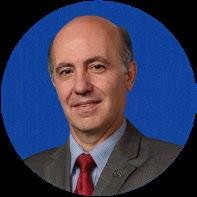
Joaquin Rodriguez
Department of Chemical and Petroleum Engineering
John C. Mascaro Faculty Fellow
An event hosted by the Mascaro Center for Sustainable Innovation at which 46 students presented 11 technical projects and eight outreach projects on sustainability, with the participation of 20 invited judges from industry and academia.
An event hosted at the Pitt Global Hub (University Center for International Studies) at which 51 students presented 11 projects related to problems/opportunities in nine foreign countries with the collaboration of 19 foreign partners and 14 invited judges from industry and academia.

Stephen Quigley
Department of English
John C. Mascaro Scholar
This camp is a youth science communication series of events across Pittsburgh, including nature outings at the Allegheny Observatory in Riverview Park and the Frick Park Nature Center, and two other events dedicated to exploring sustainable design that will be held at the Mascaro Center for Sustainable Innovation. These programs provide middle school students with an ingress into environmental education and computer science. Over the course of a single day, students investigate a topic, gather data, and use basic HTML and CSS coding to communicate and circulate their findings.

The Osher Lifelong Learning Institute at Pitt offers a five-week virtual Sustainability Foundations course focused on the United Nations Sustainable Development Goals and local progress and challenges. The average class size is approximately 30 adult learners.




The PEP team builds electric watercraft to compete in the annual Promoting Electric Propulsion for Small Craft competition organized by the Office of Naval Research and the American Society of Naval Engineers. The team competed for the third straight year.
Advisor: Tony Kerzmann, Len Peters fellow, Department of Mechanical Engineering
Kerestes, John C. Mascaro fellow, Department of Electrical and Computing Engineering



This 15-credit certificate is open to all graduate students and professionals seeking to develop their skills and knowledge of the circular economy. The program was developed using current research and recommended skill sets and takes an interdisciplinary approach to guiding students through the process of understanding and applying circular economy principles.
The next phase in building our circular economy curriculum is designing an asynchronous online circularity program for individuals at various levels and positions within industry. Topics will include decarbonization and “waste-to-X” utilization, including polymer/plastic waste recycling, and the curriculum aims to include case stories wherever available.
Team: Goetz Veser and Melissa Bilec


Lakshmi Yasodhara Ananthabhotla Advisor: Karl Johnson

Mahjabin Rahman
Advisor: Amin Rahimian


Santiago Ortiz
Advisors: Goetz Veser and James McKone

Carlan Gray
Advisor: Susan Fullerton
In collaboration with the Office of Sustainability in the Health Sciences, the Introduction to Sustainable Health Care course is for all individuals in health care who are interested in understanding the impact of the current health care system on the environment, the science that will make positive changes in the future, and the methods for change. This course will emphasize how to cultivate the psychological tools necessary to maintain joy and avoid burnout. The online curriculum is currently under development and will be available in 2025.
Team: Melissa Bilec, Noe Woods and Mike Boninger
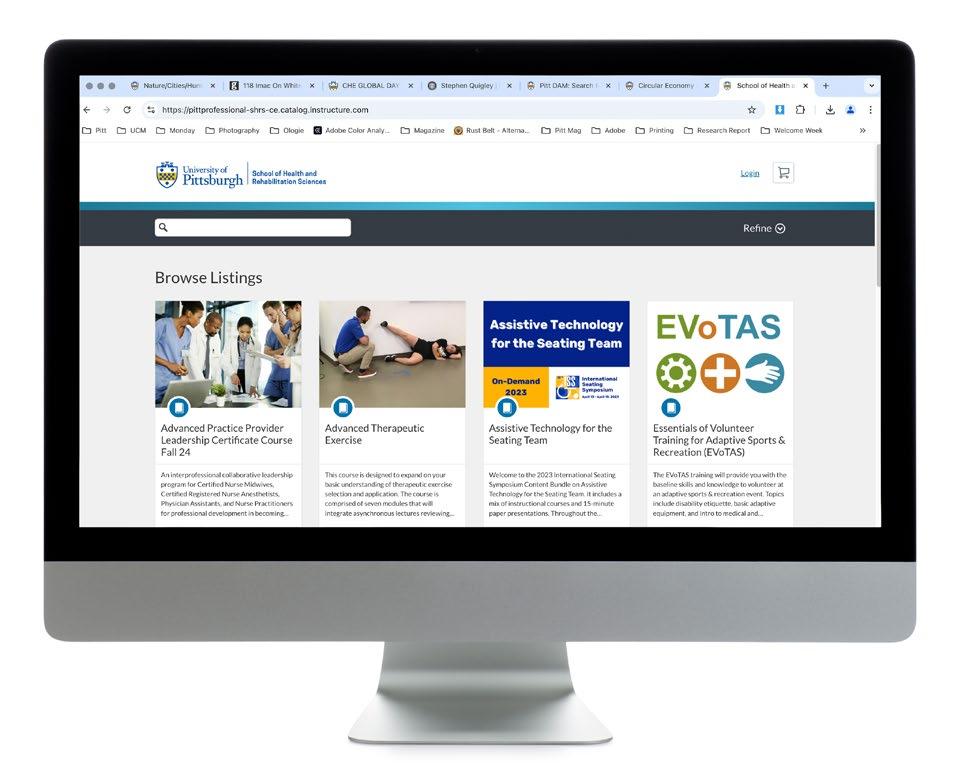
MCSI brings together faculty, staff, students, and external friends to engage in dialogue on a wide variety of sustainability topics.
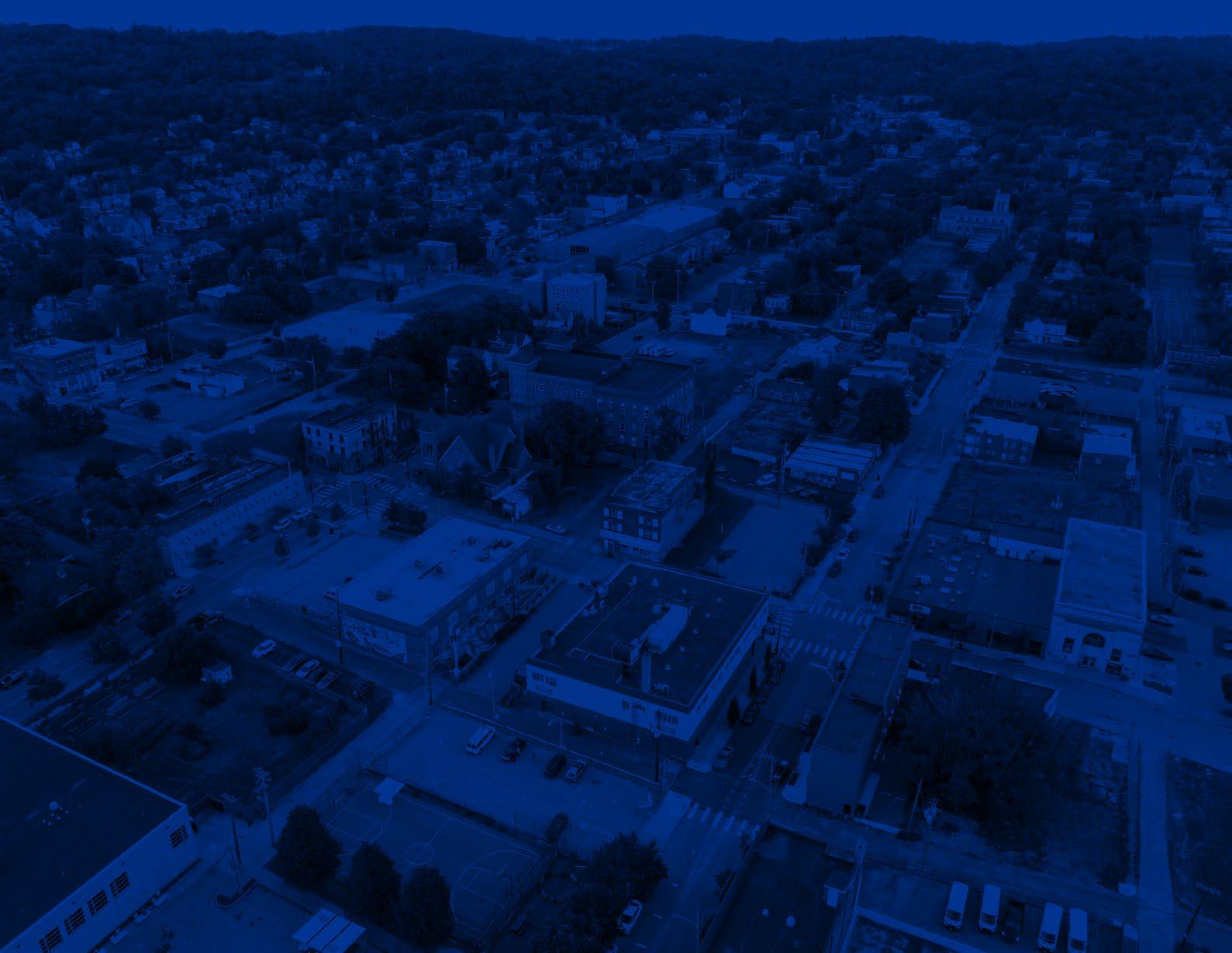










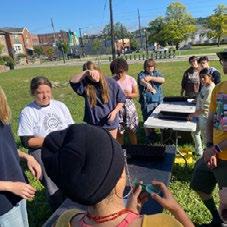
Volunteer days at Oasis Farm and Fishery were held during the 2023-24 school year and managed by David Sanchez along with MCSI’s community engagement staff working with Sanchez. The Oasis Farm and Fishery is a local community garden and educational center in the Homewood neighborhood of Pittsburgh. Volunteers helped with farm needs, planting and harvesting crops in both raised soil beds and the aquaponics shed.

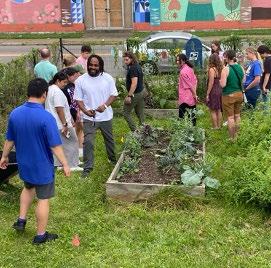

David Sanchez supervised students in engaging and serving Appalachia (in Fayette County). This included visits to Connellsville and Uniontown to engage with locals, community members, and nonprofit leaders. Specifically, students and Sanchez visited with residents and local business and hosted a large luncheon with community leaders and teachers and students from Uniontown High School. One of the main things the students and community members coordinated was the distribution of a cocreated survey that had more than 200 responses. The results are now being shared so that community efforts can move forward.

Pitt students joined urban farm leaders in the Homewood neighborhood to visit five local farms and gardens, learn about their connection to the community, and sample locally grown cuisine.
The primary objective of this partnership is to unite Pitt faculty (via the David C. Frederick Honors College) with the Fayette County Cultural Trust (FCCT) to assess and begin to address the causes and consequences of out-migration of higher educated and skilled individuals from Fayette County, Pennsylvania, an economically distressed area located about an hour’s drive from Pitt’s campus in Oakland. Central to this goal is the creation of a lasting positive relationship with FCCT and other community stakeholders that will allow Pitt to provide research and programmatic support to the residents of Fayette County while also addressing our central research topics and providing an opportunity for undergraduate students to engage in ethical community-based research.





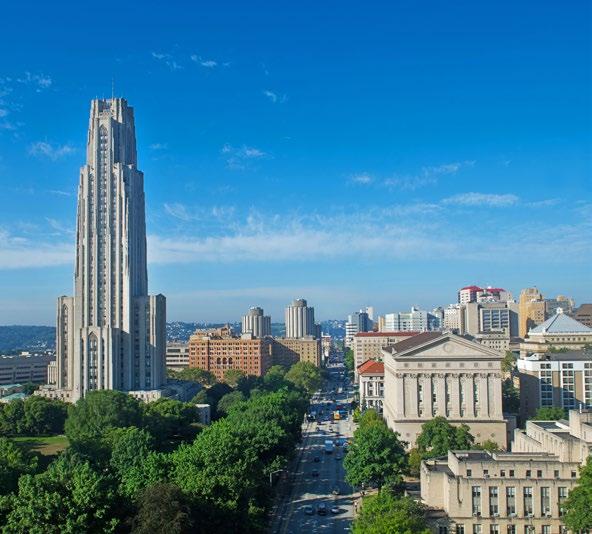


undergraduate and graduate Student Sustainability Champions
Started in 2015, the Pitt Sustainability awards annually recognize Pitt students, faculty, staff, and groups who have prioritized sustainability in their work, extracurriculars, and daily lives, both on and off campus. Presented by the Office of Sustainability and MCSI, awardees and student champions were honored at the 17th Annual Sustainability Symposium on April 19.
Kevin Bell: assistant professor, Department of Bioengineering, Swanson School of Engineering
Joaquin Rodriguez: assistant professor, Department of Chemical and Petroleum Engineering, Swanson School of Engineering
STAFF
Swagatika Bhattacharya: foundations lab technician, Department of Biological Sciences, Kenneth P. Dietrich School of Arts and Sciences
Eric Hammill: electronic disposal and refurbishing supervisor, Pitt Surplus
Martina Frederick : environmental studies
Maggie Lincoln: environmental science/ecology and evolution
ERIKA NINOS STUDENT LEADERSHIP AWARD
Christy Kim: environmental studies

Feb. 20, 2024
Environmental Discourse
March 26, 2024
Thriving Futures
May 7, 2024
Resilient—Ecological Systems
Sept. 17, 2024
Regenerative Solutions
Dr. Aurora Sharrard, Assistant Vice Chancellor for Sustainability
Dr. Dan Bain, Deputy Director, Pittsburgh Water Collaboratory
Ward Allebach, Geology & Environmental Sciences
Dr. David Sanchez , MCSI
John Sebastian, Construction Management Program
Terri Gregos Fitzgerald, Center for Branding
Dr. Cori Richards-Zawacki, Pymatuning Lab of Ecology
Dr. Mary Ohmer, Social Work
Maureen Beal, Financial Operations
Gina Bleck , Planning, Design, & Construction
Dr. Lina Dostilio, Engagement & Community Affairs
Dan Fisher, Operations & Maintenance, Facilities Management
Melissa Micco, Office of the Chief Financial Officer
Matthew Sterne, Business Services


The idea of bringing the two sides together, Sharrard said, “is to showcase to operational folks who may be in the room what those potential partnership mechanisms might look like, because some projects may be small, some projects may be larger and more in depth and span years. … And part of it is to show off these projects that have already happened and may happen fairly regularly, so that people have a model that they can follow.”

Continuing the existing partnership between MCSI and Pittsburgh Allegheny 6-8 Traditional Academy, MCSI staff joined the eighth-grade science classroom to provide hands-on educational programming on sustainability topics. Staff taught two lessons at the school focused on sustainable energy and water filtration, then hosted the students on campus for a tour of Pitt’s sustainability features and to teach them more about wind energy through a design challenge.


MCSI developed a new partnership with several local high schools in collaboration with the Energy Innovation Center and Consortium for Public Education’s Student Sustainability Design Challenge (SSDC). MCSI staff served as project mentors for students working on yearlong projects within their schools or surrounding communities. Student projects from this past year included playground updates, rain gardens at school, and development of community lunch and stores within school to reduce food waste and address equity issues with access to basic resources. Students from North Hampton High School and Greensburg-Salem High School visited campus in the spring to learn more about what Pitt is doing and how it could inform their own projects.

MCSI visited Lincoln elementary school in Larimer for its STEAM Fun Day. MCSI staff led a series of STEAM activities geared toward K-5 students aimed at building their exposure to and interest in science and technology.

Students from the AP environmental science course joined Pitt Capstone students for field sampling up- and down-stream from the Shell facility.


Dr. David Sanchez supervised students in engaging and serving community members and high school students in Fayette County including co-creating a survey with over 200 responses and hosting luncheons bringing together key community stakeholders.
MCSI partnered with Oasis Farm & Fishery education staff to host a Green STEAM event for K-5 students. The event offered several activities for students to participate in, and MCSI hosted a station focused on water filtration. Students build miniature water filters to filter debris out of water.

In January, MCSI hosted the Investing Now team and cohort of high school students for a handson lesson on renewable energy. Students learned about career pathways related to sustainability before testing out their engineering skills to design simple wind turbines from craft supplies. They attached their designs to small motors and meters to test



Melissa Bilec, Civil & Environmental Engineering
Emily Elliott, Geology & Environmental Sciences
Shanti Gamper Rabindran, GSPIA
Sarah Haig, Civil & Environmental Engineering
Aaron Henderson, Studio Arts
Tina Ndoh, Public Health
Carla Ng, Civil & Environmental Engineering
Cassie Quigley, Science Education
David Sanchez, Civil & Environmental Engineering
Alison Sanders, Public Health
Goetz Veser, Chemical Engineering

“One of the things we love about the collaborative here is that it’s interdisciplinary. Because the environment is interdisciplinary. The challenges that we have are interdisciplinary,” he said. “It’s not just the impact of the built environment, but it’s also social, cultural, economic and racial decisions—and policymaking in the past—that we’re trying to overcome.
“We need all the disciplines participating, and the University of Pittsburgh gets that,” Ortiz added. “That’s what this represents. And that’s exactly the kind of partnership that we need.”
Adam Ortiz EPA Mid-Atlantic Regional Administrator Click here to read the University Times story online
“Regional EPA administrator learns of Pitt’s Sustainability innovations, goals in campus visit,” University Times https://www.utimes.pitt.edu/news/regional-epa


759 RECIPIENTS




Highlight: Reese Hawk/URP visit
779 RECIPIENTS
29.9% OPENED RECIPIENTS
41.8% OPENED FEBRUARY
40.4% OPENED
Highlight: Alex Dale/Campus visit
2,475
Highlight: Sage Lincoln

50
11,369
538
21
26,389
837

21
20 POSTS POSTS POSTS POSTS
1,649
23,775 IMPRESSIONS IMPRESSIONS IMPRESSIONS IMPRESSIONS
118
299 FOLLOWERS FOLLOWERS FOLLOWERS FOLLOWERS

Tony Kerzmann, associate professor, Department of Mechanical Engineering and Materials Science, Swanson School of Engineering
Justin Kitzes, assistant professor, Department of Biological Sciences, Kenneth P. Dietrich School of Arts and Sciences
Ruth Mostern, associate professor, Department of History, Dietrich School
Tina Ndoh, associate professor, Department of Environmental and Occupational Health, and associate dean for public health practice, School of Public Health
Joaquin Rodriguez, assistant professor, Department of Chemical and Petroleum Engineering, Swanson School
Patrick Shirey, assistant professor, Department of Geology and Environmental Science, Dietrich School
Gotz Veser, professor, Department of Chemical and Petroleum Engineering, Swanson School
Corinne Zawacki, professor, Department of Biological Sciences, and director, Pymatuning Laboratory of Ecology, Dietrich School
Christopher Drew Armstrong, associate professor, Department of History of Art and Architecture, Dietrich School
Dan Bain, assistant professor, Department of Geology and Planetary Science, Dietrich School
Aaron Barchowsky, professor, Department of Environmental and Occupational Health, School of Public Health
Eric J. Beckman, director emeritus, Mascaro Center for Sustainable Innovation, and Distinguished Service Professor Emeritus, Department of Chemical and Petroleum Engineering, Swanson School
Melissa Bilec, codirector, Mascaro Center for Sustainable Innovation, and professor, Department of Civil and Environmental Engineering, Swanson School

Michael Boninger, Distinguished Professor, Department of Physical Medicine and Rehabilitation, School of Medicine
Matthew Burton, teaching assistant professor, Department of Information Culture and Data Stewardship, School of Computing and Information
John Camillus, Beall Professor of Strategic Management, Joseph M. Katz Graduate School of Business
Markus Chmielus, associate professor, Department of Mechanical Engineering and Materials Science, Swanson School
Mark Collins, teaching professor, environmental studies capstone advisor, and program coordinator, Department of Geology and Environmental Science, Dietrich School
Emily Elliott, professor, Department of Geology and Environmental Science, Dietrich School
Shanti Gamper-Rabindran, professor, Graduate School of Public and International Affairs (GSPIA)
Michael Glass, assistant professor, Department of Sociology, and director, Urban Studies Program, Dietrich School

Marcela Gonzalez Rivas, associate professor, GSPIA
Michael Goodhart, professor, Department of Political Science and Gender, Sexuality, and Women’s Studies Program, Dietrich School
Robert Kerestes, associate professor, Department of Electrical and Computer Engineering, Swanson School
Tony Kerzmann, associate professor, Department of Mechanical Engineering and Materials Science, Swanson School
Justin Kitzes, assistant professor, Department of Biological Sciences, Dietrich School
Stephen Lee, assistant professor, Department of Computer Science, School of Computing and Information
Paul Leu, associate professor, Department of Industrial Engineering, Swanson School
Tomas Matza, director of graduate studies and associate professor, Department of Anthropology, Dietrich School
Daniel Mosse, professor and chair, Department of Computer Science, School of Computing and Information
Ruth Mostern, associate professor, Department of History, Dietrich School
Tina Ndoh, associate professor, Department of Environmental and Occupational Health, and associate dean for public health practice, School of Public Health
Carla Ng, associate professor, Department of Civil and Environmental Engineering, Swanson School
Mary Ohmer, associate professor, School of Social Work
Cassie Quigley, professor and chair, Department of Teaching, Learning, and Leading, School of Education
Warren Ruder, associate professor, Department of Bioengineering, Swanson School
David Sanchez, associate director, Mascaro Center for Sustainable Innovation, and associate professor, Department of Civil and Environmental Engineering, Swanson School
John Sebastian, professor, Department of Civil and Environmental Engineering, and director, McKamish Construction Management Program, Swanson School
Kay Shimizu, assistant professor, Department of Political Science, Dietrich School
Patrick Shirey, assistant professor, Department of Geology and Environmental Science, Dietrich School
Fernando Tormos-Aponte, assistant professor, Department of Sociology, Dietrich School
Goetz Veser, professor, Department of Chemical and Petroleum Engineering, Swanson School
John Walsh, associate professor, Department of French and Italian, Dietrich School
Jennifer Wasco, assistant professor, Department of Acute/Tertiary Care, School of Nursing
Jeremy Weber, associate professor, GSPIA
Corinne Zawacki, professor, Department of Biological Sciences, and director, Pymatuning Laboratory of Ecology, Dietrich School


Jennifer Barnes, supplier diversity and sustainability manager, Purchasing Services
Illona Beresford, director of planning and projects, Office of Business, Hospitality, and Auxiliary Services
Melissa Bilec, special assistant to the provost on sustainability; codirector, Mascaro Center for Sustainable Innovation; and professor, Department of Civil and Environmental Engineering, Swanson School of Engineering
Justin Dandoy, director of community affairs, Office of Engagement and Community Affairs
Keith Duval, associate director of environmental programs, Department of Environmental Health and Safety, School of Public Health
Nicholas Goodfellow, sustainability manager, Office of Business, Hospitality, and Auxiliary Services
Dustin Gray, executive associate athletic director for administration, Department of Athletics
Susanna Hamilton, student sustainability engagement manager, Division of Student Affairs
Neeha Kolli, student director, Student Office of Sustainability
Gena Kovalcik, codirector, Mascaro Center for Sustainable Innovation
Will Mitchell, facility services director, Office of Facilities Management
Nathaniel Pettit, doctoral student, applied developmental psychology, School of Education
Aurora Sharrard, committee chair and assistant vice chancellor for sustainability, Office of Sustainability
Cindy Wertz, chief of staff, Information Technology
Laura Zullo, director of administration, Office of Business, Hospitality, and Auxiliary Services

Nicholas Goodfellow, sustainability manager, Office of Business, Hospitality, and Auxiliary Services
Gena Kovalcik, codirector, Mascaro Center for Sustainable Innovation
Aurora Sharrard, assistant vice chancellor for sustainability, Office of Sustainability
Laura Zullo, director of administration, Office of Business, Hospitality, and Auxiliary Services
